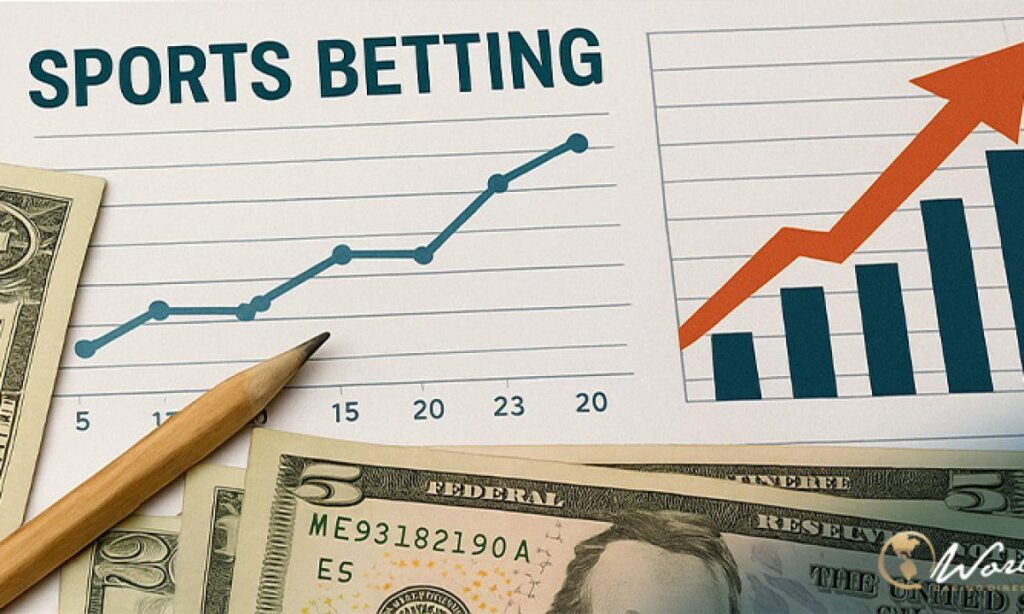Louisiana is preparing to increase its sports betting tax as part of a legislative effort to generate additional revenue aimed at supporting college athletes. The proposed hike seeks to channel funds directly into programs that compensate student-athletes, reflecting a growing trend nationwide to leverage legalized gambling revenues for collegiate sports. This move marks a significant step in the state’s ongoing debate over athlete compensation and the financial role of sports betting in higher education.
Louisiana Proposes Increased Sports Betting Tax to Fund College Athlete Compensation
Louisiana lawmakers have introduced a proposal to increase the tax rate on sports betting revenues, aiming to generate additional funds earmarked specifically for compensating college athletes. This move comes amid growing calls across the nation to address athlete pay fairness and to support student-athletes financially without burdening educational institutions. The proposed tax hike would adjust the current sports betting tax from 10% to 15%, potentially raising millions in new revenue streams dedicated to athlete stipends and scholarship enhancements.
Stakeholders from the collegiate sports community and the gaming industry have voiced varied opinions on the proposal. Supporters highlight these key expected benefits:
- Direct financial support for athletes without increasing tuition fees
- Boosting college programs’ competitiveness by attracting top talent
- Economic growth through expanded betting operations
However, opponents caution about the impact on betting operators and the risk of higher consumer costs. Below is a summary comparing current and proposed tax structures:
| Tax Aspect | Current Rate | Proposed Rate |
|---|---|---|
| Sports Betting Tax | 10% | 15% |
| Funds Allocated to College Athletes | None Specified | Dedicated Portion (Estimated $5M+) |
| Impact on Betting Operators | Standard | Potential Increase in Compliance Costs |
Impact of Higher Tax Rates on Sports Betting Industry and Revenue Projections
Louisiana’s proposed increase in sports betting tax rates represents a significant shift in how the state plans to capitalize on the growing industry. By elevating the tax rate from its current 10% to a proposed 20%, lawmakers anticipate generating millions in new revenue aimed primarily at funding college athlete compensation programs. However, this move has sparked debate among industry stakeholders who warn that higher taxes could reduce operator margins and deter market entrants, potentially slowing market expansion. Despite these concerns, proponents emphasize the societal benefits, noting that increased tax revenue will directly support student-athletes’ well-being and development.
Industry analysts project a mixed impact on revenue streams due to the tax hike. While the state expects a short-term uplift in tax receipts, the long-term forecast includes potential adjustment in betting volumes as operators recalibrate odds and customers respond to pricing changes. Key factors influencing the outcome include:
- Operator adaptability to absorb or pass costs to consumers
- Consumer sensitivity to betting price changes
- Market competition from neighboring states with lower tax rates
| Tax Rate | Projected Annual Revenue | Estimated Bet Handle |
|---|---|---|
| 10% (Current) | $45 million | $450 million |
| 20% (Proposed) | $80 million | $400 million |
Potential Benefits for Louisiana Colleges and Athletes from Expanded Funding
Increased funding from the proposed rise in sports betting taxes stands to bolster Louisiana’s colleges by directly addressing the financial challenges associated with compensating student-athletes. This financial influx could enhance scholarship offerings, improve athletic facilities, and expand academic support programs aimed at balancing sports and education. Colleges may also benefit from greater revenue sharing, which would help elevate their competitive status and attract top-tier athletic talent within and beyond the state.
For athletes, the benefits extend beyond immediate compensation. Expanded funding could lead to increased health and wellness resources, including upgraded training equipment and access to specialized medical care. Below is a simplified breakdown of potential advantages for both colleges and athletes from this initiative:
- Enhanced Scholarship Programs allowing broader financial support
- Improved Athletic Facilities fostering better training environments
- Dedicated Academic Support to ensure educational success
- Expanded Health and Wellness Services optimizing athlete safety
- Stronger Recruitment Opportunities boosting team competitiveness
| Benefit Category | Colleges | Athletes |
|---|---|---|
| Financial Support | Increased scholarships & program funding | Direct compensation and stipends |
| Facilities | Modernized training centers | Access to enhanced workout environments |
| Health & Wellness | Expanded medical staffing | Better injury prevention & treatment |
Policy Considerations and Recommendations for Balancing Taxation and Industry Growth
As Louisiana moves forward with plans to increase the tax on sports betting, policymakers must carefully weigh the potential economic impact against the benefits of funding collegiate athlete compensation. While higher tax rates promise increased revenue for universities, there is concern that overly aggressive taxation could stifle industry growth, reduce market competitiveness, and ultimately discourage operators from expanding their offerings within the state. Striking a balance between generating sustainable revenue and maintaining a dynamic sports betting environment requires nuanced regulatory frameworks and ongoing stakeholder engagement.
Recommendations for achieving this balance include:
- Implementing a tiered tax structure that adjusts rates based on operator revenue thresholds to encourage small and medium-sized businesses.
- Introducing tax credits or incentives tied to investments in community programs or college athlete support.
- Enhancing transparency and reporting requirements to ensure collected funds are effectively channeled toward athlete compensation.
| Policy Factor | Potential Impact | Suggested Approach |
|---|---|---|
| Tax Rate | High rates may limit operator growth | Balanced, tiered taxation |
| Revenue Allocation | Ensures funding for athletes | Dedicated athlete compensation funds |
| Market Competitiveness | Attracts diverse operators | Tax incentives and engagement |
To Wrap It Up
As Louisiana moves forward with plans to increase its sports betting tax, the state sets a precedent in exploring innovative funding avenues to support college athletes. While the proposal aims to bolster financial resources for collegiate sports programs, stakeholders will be closely watching the implementation and its broader impact on both the gambling industry and higher education. The coming months will be critical in determining how effectively this approach can balance economic growth with the evolving landscape of college athletics.





